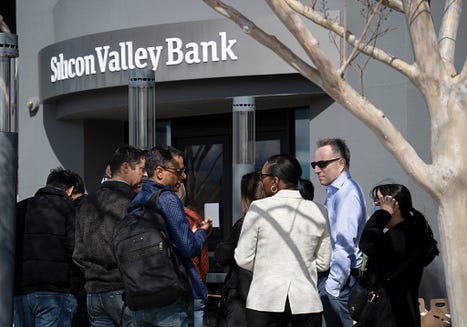
As Jerome Powell, the Federal Reserve Chairman, elucidated in a recent press conference, the current bank failures in the United States stemmed from a combination of liquidity and interest rate risks, inadequate management, and exposure to a concentrated group of depositors. The collapse of these banks threatens to send shockwaves through the entire economy, potentially undermining public confidence in the banking system. Consequently, in conjunction with the Treasury Department and the Federal Deposit Insurance Corporation (FDIC), the Federal Reserve has taken decisive measures to protect the US economy and guarantee the security of depositors’ savings.

In particular, the Federal Reserve has implemented the systemic risk exception to protect uninsured depositors in Signature Bank and Silicon Valley Bank cases. According to Powell, one of the primary issues with Silicon Valley Bank was that its management should have hedged against significant interest rate risks, leaving the bank vulnerable. Additionally, the bank had a concentrated group of depositors, including technology companies and start-ups, which ultimately precipitated the crisis.
Silicon Valley Bank’s troubles began a few years prior when it purchased a substantial volume of long-term US treasury bonds. As interest rates increased, the value of these bonds declined. When the bank experienced a surge in withdrawals from depositors, it was forced to sell these bonds prematurely to cover the leaves, prompting the need to raise capital, spooking investors, and triggering a massive bank run.
To curb the ripple effects resulting from the collapse of these two banks, the Federal Reserve has laid out several courses of action. In his press conference, Powell detailed the Federal Reserve’s plans to review supervision and regulation, identify the underlying issues, assess the necessary policy changes, and implement these new policies. The review process will be comprehensive and transparent, with any recommendations fully supported for implementation. Powell has expressed his commitment to determining what went wrong and amending the relevant policies to prevent similar situations from occurring in the future.
Powell briefly touched upon the recent Credit Suisse debacle, although he could not provide extensive commentary due to the matter falling outside his jurisdiction. Credit Suisse, a prominent Swiss bank, failed last week and was acquired by UBS at a significantly reduced price with the assistance of the Swiss National Bank, Switzerland’s central banking authority[⁸^]. The markets have responded favourably to the transaction, which appears to have proceeded smoothly.
In summary, the Federal Reserve, Treasury Department, and FDIC have taken resolute action to safeguard the US economy and ensure the security of depositors’ savings in the banking system in light of recent bank failures. The systemic risk exception has been implemented to protect uninsured depositors in cases involving banks such as Signature Bank and Silicon Valley Bank. Powell has vowed to examine the root causes of the failures and implement necessary policy changes to prevent future incidents. The Credit Suisse situation was also briefly mentioned, with the markets seemingly accepting the transaction and its successful execution.
Footnotes
Federal Reserve. (2022). Transcript of Chairman Powell’s Press Conference. Retrieved from https://www.federalreserve.gov/mediacenter/files/FOMCpresconf20220405.pdf
Treasury Department. (2022). Treasury, Federal Reserve, and FDIC actions to address bank failures. Retrieved from https://home.treasury.gov/news/press-releases/jy0487
FDIC. (2022). Systemic Risk Exception: Protecting Uninsured Depositors. Retrieved from https://www.fdic.gov/regulations/laws/rules/2000-8660.html